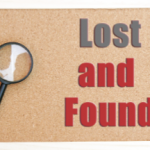Dr. Maini says that he is “delighted to be chosen as a fellow, particularly because it is an unusual selection for a clinical researcher like myself to be chosen.” The award is primarily given to basic scientists. “When two fellows of the society asked me for my curriculum vitae, I guessed that I might be in the running,” he says.
The lifelong rheumatologist and ACR member was given this distinction because of his pioneering work on the use of anti–tumor necrosis factor (TNF) monoclonal antibodies for the treatment of RA.
In London in the early 1980s, Dr. Maini and his colleague, immunologist Marc Feldmann, MD, first tested the theory that cytokines lead to autoimmune disease. They decided to study this theory by testing the tissue of patients with RA because it gave them the opportunity to study the tissue when it was highly inflamed. The tissue could be accessed during the synovium in RA. They found a direct association, but no antibody-based therapy existed at the time.
In 1992, the two researchers began the first clinical trial of anti-TNF in patients with RA. Early success among patients who had not responded to other therapy led to a multi-center, double-blind, placebo trial in Europe in 1993. Dr. Maini’s clinical research on anti-TNF has proven that antibodies can be used long term in patients and that immunogenicity issues are “real but nevertheless manageable,” he says.
Dr. Salmon: Lupus Leader

The former chair of ACR’s Committee on Research, Dr. Salmon was named the co-winner of the Carol Nachman Prize for 2007. This award is the most prestigious international award for rheumatology research. Dr. Salmon received the award, which includes a monetary prize that allows her to further her work, for her innovative research into the pathogenesis of organ damage in systemic lupus erythematosus and other disorders of the immune system. Most recently, Dr. Salmon and her colleagues at the Hospital for Special Surgery in New York City have explored the reasons for high incidence of pregnancy loss in women with lupus. This is particularly the case in women who have antiphospholipid syndrome, says Dr. Salmon.
“I was thrilled when I was notified of the award,” says Dr. Salmon. It was particularly gratifying because the award is based in Germany. “My parents were German refugees after World War II,” she explains. “This award is recognition that things have changed since then.” Dr. Salmon invited her mother to join her at the awards ceremony in Wiesbaden, Germany. Dr. Salmon is also proud of this achievement because few other women have received the Nachman Award since it was established in 1972.


